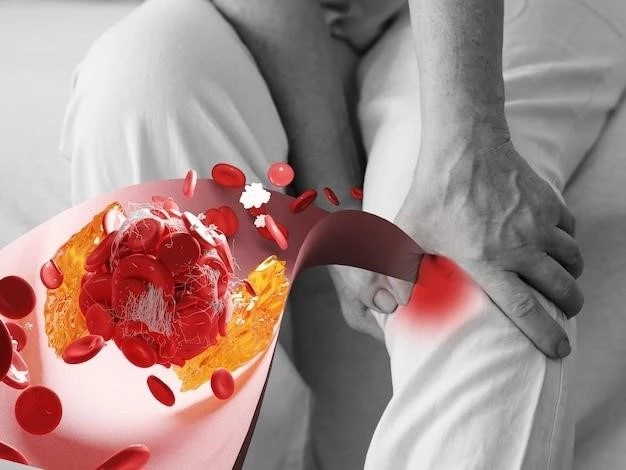Overview of Acute Myeloblastic Leukemia Type 3
Acute Myeloblastic Leukemia Type 3 is a subtype of acute myeloid leukemia characterized by the presence of abnormal promyelocytes.
Description⁚
Acute Myeloblastic Leukemia Type 3, also known as Acute Promyelocytic Leukemia (APL), is characterized by a genetic translocation involving chromosomes 15 and 17. This results in the formation of the PML-RARα fusion gene, leading to an abnormal accumulation of immature white blood cells known as promyelocytes. APL is a medical emergency due to the risk of severe bleeding and requires immediate intervention.
Symptoms and Diagnosis of Acute Myeloblastic Leukemia Type 3
Common Symptoms⁚
Patients with Acute Myeloblastic Leukemia Type 3 may experience symptoms such as unexplained bruising, bleeding easily, fatigue, shortness of breath, recurrent infections, bone pain, and fever. Additionally, some individuals may present with skin manifestations such as petechiae or ecchymosis.
Diagnostic Procedures⁚
Diagnosis of Acute Myeloblastic Leukemia Type 3 involves blood tests to assess white blood cell counts, bone marrow aspiration and biopsy to examine the morphology of cells, and genetic testing to identify the presence of the PML-RARα fusion gene. Additionally, clotting studies may be performed to evaluate the risk of bleeding. Imaging studies such as MRI or CT scans may also be used to assess organ involvement.
Treatment Options for Acute Myeloblastic Leukemia Type 3
Chemotherapy⁚
Chemotherapy is a primary treatment for Acute Myeloblastic Leukemia Type 3, aiming to eliminate cancer cells in the bone marrow and blood. Drugs such as all-trans retinoic acid (ATRA) and arsenic trioxide are commonly used in combination with other chemotherapy agents to induce remission. Chemotherapy regimens are tailored based on the patient’s age, overall health, and genetic features of the leukemia cells.
Stem Cell Transplant⁚
Stem cell transplant, also known as bone marrow transplant, may be considered for individuals with Acute Myeloblastic Leukemia Type 3 who are at high risk of relapse. This procedure involves replacing diseased bone marrow with healthy stem cells from a donor. Allogeneic transplants are commonly performed, and the success of the transplant depends on factors such as donor compatibility and the patient’s response to prior treatments.
Prognosis and Survival Rates of Acute Myeloblastic Leukemia Type 3
Survival Rates⁚
The survival rates for Acute Myeloblastic Leukemia Type 3 have significantly improved in recent years due to advancements in treatment approaches. With timely diagnosis and appropriate therapy, the 5-year survival rate for patients with APL is now around 80-90%. However, individual prognosis may vary based on factors such as age, overall health, response to treatment, and genetic characteristics of the leukemia cells.
Risk Factors for Acute Myeloblastic Leukemia Type 3
Genetic Predisposition⁚
Genetic predisposition plays a crucial role in the development of Acute Myeloblastic Leukemia Type 3. The presence of specific genetic mutations٫ such as the translocation between chromosomes 15 and 17 leading to the PML-RARα fusion gene٫ significantly increases the risk of developing APL. Understanding the genetic factors involved is essential for personalized treatment strategies and risk assessment in individuals with this subtype of leukemia.
Research Advances in Acute Myeloblastic Leukemia Type 3
Current Studies⁚
Ongoing research studies in Acute Myeloblastic Leukemia Type 3 focus on elucidating novel targeted therapies, enhancing the efficacy of stem cell transplants, exploring immunotherapy approaches, and investigating mechanisms of treatment resistance. Clinical trials aiming to optimize treatment outcomes, minimize side effects, and improve long-term survival are actively being conducted to advance the management of this leukemia subtype.
Supportive Care for Patients with Acute Myeloblastic Leukemia Type 3
Palliative Care⁚
Palliative care for patients with Acute Myeloblastic Leukemia Type 3 focuses on symptom management, improving quality of life, and providing support to both patients and their families. It includes pain relief, psychological and emotional support, nutritional guidance, and coordination of care to address the holistic needs of individuals facing the challenges of this aggressive form of leukemia.

Coping Strategies for Individuals with Acute Myeloblastic Leukemia Type 3
Psychological Support⁚
Psychological support is vital for individuals with Acute Myeloblastic Leukemia Type 3 to address anxiety, depression, and coping with the emotional aspects of the disease. Services such as counseling, support groups, and mindfulness techniques can help patients navigate the challenges and uncertainties that come with a leukemia diagnosis, enhancing overall well-being during the treatment journey.
